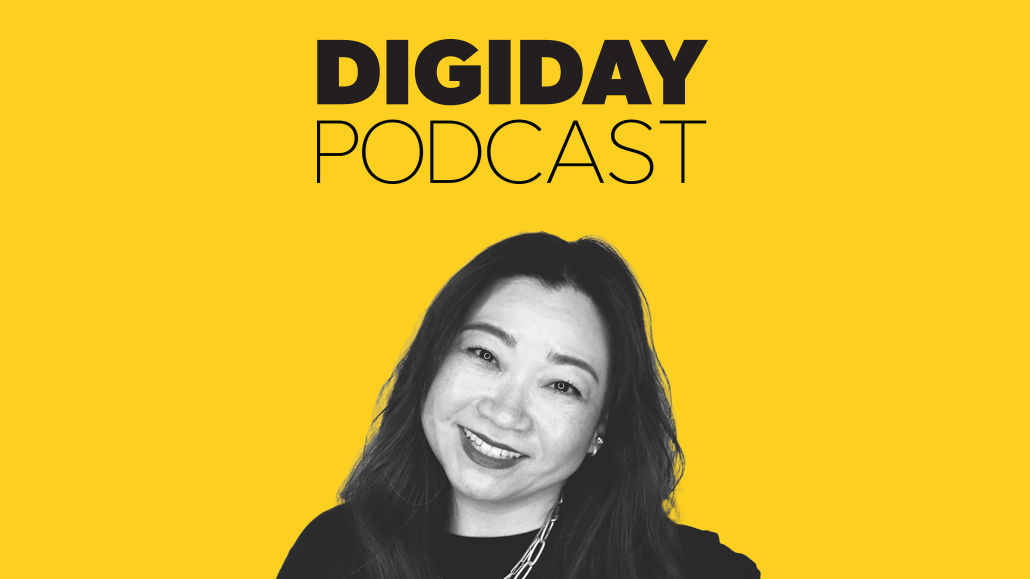Secure your place at the Digiday Media Buying Summit in Nashville, March 2-4
Why entertainment expert Eunice Shin is watching streamers’ subscriber churn rates

Subscribe: Apple Podcasts • Spotify
Earnings season is officially under way, and Eunice Shin has her eye on streaming service owners’ abilities to retain their subscribers.
“In a world where economic uncertainties still exist, where the quality of content continues to be hits-based and a lot of bombs, how are we thinking about churn and how are these streaming platforms keeping the customers they’ve worked so hard to gain in an increasingly competitive and price-competitive world?” said Shin, a partner at strategy consulting firm Prophet who has consulted for companies including Disney, Warner Bros. and NBCUniversal, in the latest episode of the Digiday Podcast.
It’s a big question, made all the more urgent considering the streaming market’s shift in emphasis from subscriber growth to profitability. Following the pandemic-induced streaming subscriber surge, that growth started to slow in 2021 and further in 2022, to the point that Netflix actually shed subscribers. Then, with the economic downturn and looming threat of a potential recession, investors’ pivoted their attentions to how much money companies are spending — and often, losing — on their streaming businesses, questioning whether streamers’ subscriber counts justified their programming costs.
Which is why Shin is keeping vigil on streamers’ subscriber churn rates.
“If you think about all of these streamers as they’ve launched — most of them during the pandemic — as people have spent a lot of money to acquire these customers, meaning not just marketing dollars but content dollars in content investments to be able to lure people onto those platforms, how are they doing in keeping them…. As much as you think about subscriber growth, if your churn number is high, it’s like one step forward, two steps back,” she said.
Here are a few highlights from the conversation, which have been edited for length and clarity.
Combating churn
That’s been Netflix’s strategy this whole time about giving you a sense of volume. Once you’re watching “Emily in Paris,” what’s next and what gets served up to you is super important to know, “Am I coming back to tomorrow or am I going to feel like I don’t need this streaming platform this month?”
The ideal churn rate
Everyone’s always been trying to get it at less than 5%. That’s the ideal state.
Streaming’s rebundling era
We’re moving into a world quickly of aggregation again. Everything we saw in the cable world before now I think we’re going to find ourselves in a streaming aggregation world where there’s going to be, “How do we show incremental value to consumers by signing up for something a little bit more expensive but that gets you more?”
The free, ad-supported streaming TV alternative? Not so FAST
I don’t know if this is throwing too strong of a dagger, but I think the [free, ad-supported streaming TV] services are only resonating with a certain amount of generations in our population. If you were to look at Gen Z behaviors, none of them are turning on Pluto [TV] to watch old reruns of “Gilligan’s Island” or whatever it may be. That type of content doesn’t resonate.
More in Future of TV

Future of TV Briefing: CTV identity matches are usually wrong
This week’s Future of TV Briefing looks at a Truthset study showing the error rate for matches between IP and deterministic IDs like email addresses can exceed 84%.

Future of TV Briefing: How AI agents prime TV advertising for ‘premium automation’
This week’s Future of TV Briefing looks at how agentic AI can enable TV networks to automate the sales of complex linear TV ad packages.

Inside NBCUniversal’s test to use AI agents to sell ads against a live NFL game
NBCUniversal’s Ryan McConville joined the Digiday Podcast to break down the mechanics of the company’s first-of-its-kind agentic AI ad sales test.








